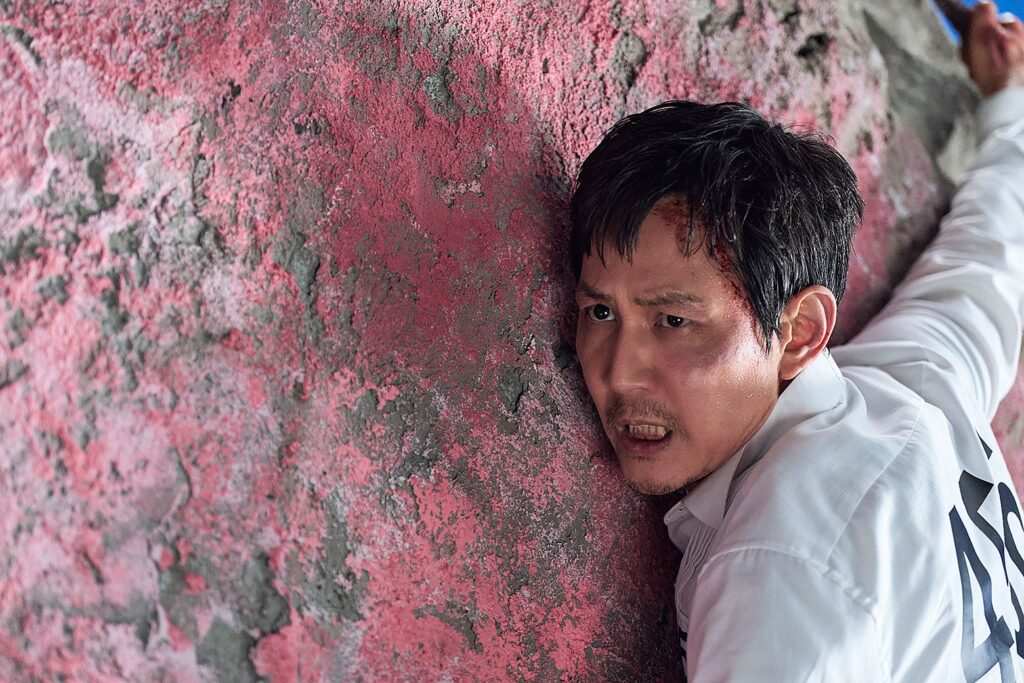
This article contains spoilers for the series finale of Squid Game.
With the June 27 release of the third season of Squid Game, Netflix’s hit Korean dystopian thriller has concluded, bringing its gruesome saga to an end. The series became a global sensation almost overnight after its debut on Netflix in September 2021, capturing the imagination of viewers worldwide who were emerging from isolation and social distancing. While other pandemic-era hits like Tiger King and The Queen’s Gambit had their dark moments, they paled in comparison to Squid Game’s brutally violent portrayal of capitalism’s impact on the disenfranchised. Now, four years, three seasons, and a controversial reality show later, the series that reaffirmed the existence of monoculture has reached its conclusion. But did Squid Game stick the landing? The answer: Well, kinda.
Season 3 picks up directly from the events of Season 2, which introduced a new set of competitors as Seong Gi-hun, aka Player 456 (Lee Jung-jae), re-enters the deadly tournament with hopes of dismantling the games from within. Throughout Season 2, Gi-hun struggles to convince his fellow players to abandon the deadly contest, which only increases the prize money with each participant’s death. The season ended with Gi-hun’s failed coup, leaving him despondent in Season 3 until the birth of an infant rekindles a glimmer of hope.
The Final Game and Gi-hun’s Sacrifice
The series finale, titled “Humans Are … ,” is divided into two parts. The first half picks up from Episode 5’s cliffhanger, while the second half occurs after a six-month time jump. In the final game, Sky Squid Game, players must cross pillars by pushing off others, leaving only one pillar and two players: Gi-hun and Player 333, Lee Myung-gi (Im Si-wan), the baby’s biological father. Gi-hun, determined to protect the baby, sacrifices himself, uttering his final words, “We are not horses. We are humans. Humans are …” before falling to his death, leaving the audience to fill in the blank.
Kang No-eul’s Redemption
Meanwhile, Kang No-eul (Park Gyu-young), a North Korean sharpshooter turned game staff executioner, defects to save a player, driven by her own maternal instincts. She discovers her daughter’s supposed death was a lie and attempts suicide before escaping the island, which is set to explode. Her journey highlights the series’ recurring theme of parental sacrifice and the lengths one will go to for family.
The Explosive End and New Beginnings
The island’s impending destruction is orchestrated by the Front Man (Lee Byung-hun), who learns that detective Hwang Jun-ho (Wi Ha-joon) has located the games. Jun-ho confronts the Front Man, his brother, but fails to stop him from escaping with the baby. The island’s explosion erases all traces of the deadly tournament.
Six months later, Jun-ho, now disillusioned with law enforcement, finds the baby and its winnings in his apartment. No-eul, having survived, receives a lead on her daughter’s whereabouts in China, reigniting her hope. The series closes a narrative loop with the reunion of Sae-byeok’s family, fulfilling her dying wish for Gi-hun to care for her brother.
The Global Implications
As for Gi-hun and the future of the games, the story shifts to the United States. The Front Man visits Gi-hun’s daughter in Los Angeles, delivering the news of her father’s death and a bank card with his remaining winnings. The finale’s most shocking twist occurs when the Front Man witnesses a new recruiter, played by Cate Blanchett, engaging in the recruitment game, suggesting the games’ expansion beyond South Korea.
The last two seasons of Squid Game may not have matched the sharpness of its viral first season, but the finale underscores a broader message. The final moments suggest that the events we watched were just a fragment of the global exploitation perpetuated by capitalism. Gi-hun’s sacrifices were in vain, as he merely cut one head off a hydra, only for more to grow in its place.
“Everything Gi-hun did, all of the invaluable things he sacrificed—his relationship with his daughter and, ultimately, his own life—were a waste.”
This reflects the real-world response to the show. Creator Hwang Dong-hyuk’s cautionary tale about morality crumbling under need and greed was co-opted by Netflix into reality shows and tourist experiences, ironically echoing the very themes of exploitation the series sought to critique. In the end, Squid Game became a testament to its own narrative, where the line between entertainment and exploitation blurs.







